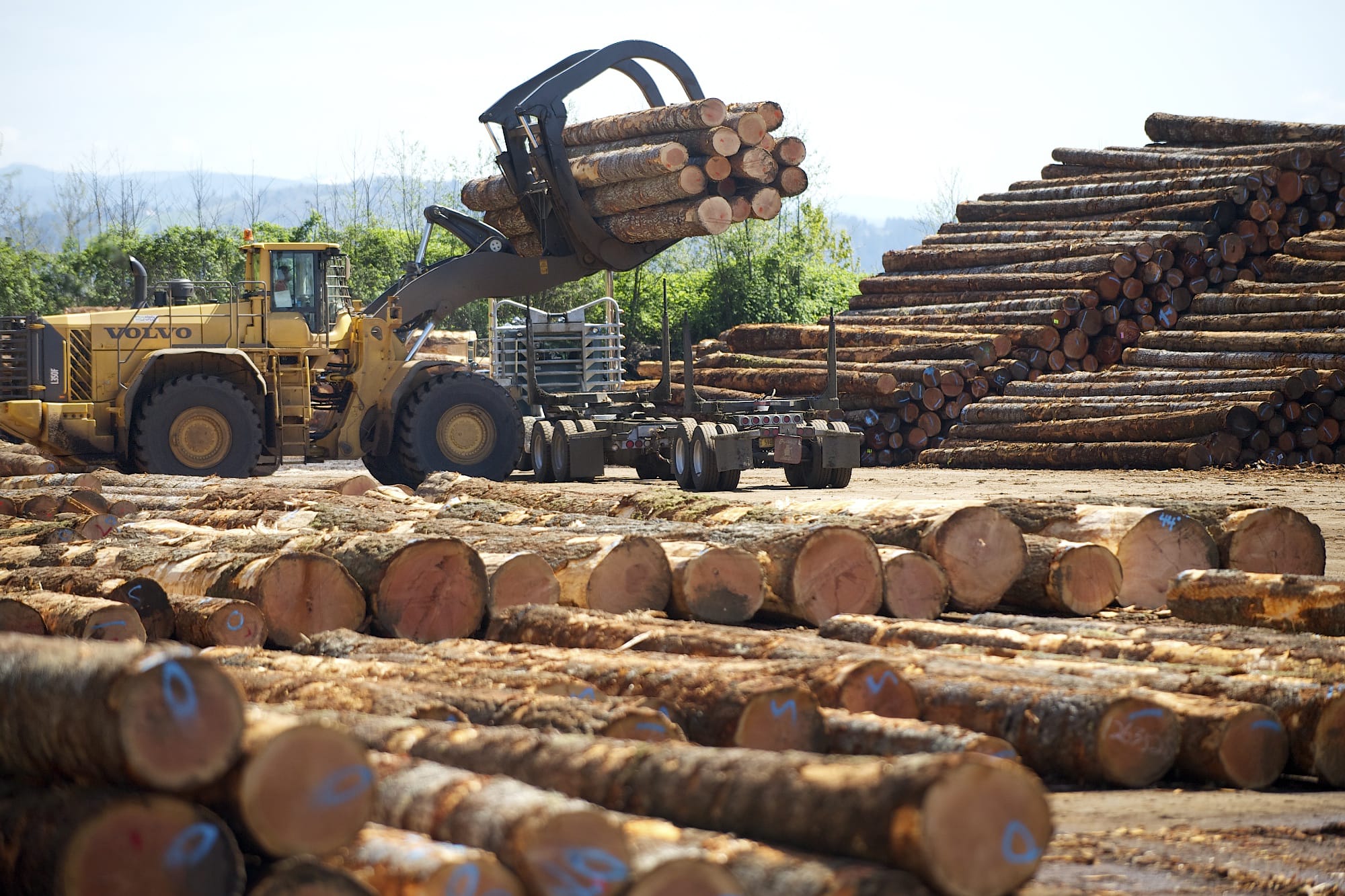Columbia Vista, the Clark County lumber mill that started in 1952, and is Clark County’s only lumber mill, has been sold to Western Forest Products Inc. of British Columbia for $30.5 million.
Columbia Vista’s workforce of approximately 90 people will be retained after the transaction closes, possibly in January, officials said. In addition to its mill at 18637 S.E. Evergreen Highway, Vancouver, the company also has a production facility in the city’s Fruit Valley neighborhood.
In addition to removing local ownership of the county’s lone surviving sawmill, the sale throws into doubt an active player in the local philanthropic community. Also, under its ownership the past two decades, Columbia Vista has built a reputation for green management practices and employee development programs.
In addition to the sales price, the sale terms call for Western Forest Products to pay Columbia Vista’s owner $6.7 million for inventory and accounts receivable, among other working capital items.
Columbia Vista produced approximately 60 million board feet of lumber last year, according to a Western Forest Products news release.
“We are excited to welcome Columbia Vista’s employees to Western,” Don Demens, Western’s president and CEO, said in the news release. “This acquisition is consistent with our strategy of pursuing margin-focused business opportunities that complement our position in selected markets.
“Bringing Western and Columbia Vista together provides Western the opportunity to expand its Douglas fir specialty product offerings, particularly in Japan where our customers have been asking us to source Douglas fir to complement our B.C. hemlock. The combination of Columbia Vista and Western will make us more meaningful to our selected customers and create a stronger company for all our employees.”
Columbia Vista co-owner Bob Lewis, who serves as president, will remain with Vancouver, B.C.-based Western, to serve as a consultant for three years. His wife, Sharon Lewis, is the company’s other owner and has served as its chief executive.
“My wife and I are not getting any younger,” Lewis said Monday. “We are both nearly 70. We were thinking about making the transition” when Western initiated talks. The purchase agreement was signed Nov. 20.
Bob Lewis said Western has “a similar operating philosophy, a similar philosophy about people,” adding, “They have much greater access to capital than we do. They have a $250 million credit line.”
“They want to grow in the Pacific Northwest, maybe expand their horizon,” Lewis said. “We thought it was a great fit for us and for our employees.”
Lewis said Western executives met with Columbia Vista employees last week.
Western’s leaders “want all of those people (employees) to intimately involved,” Lewis said. “They recognize the asset that people have on the balance sheet.”
Western and Columbia Vista are the two largest suppliers of lumber to the Japanese housing market, Lewis said. “There are great synergies,” he said.
Focused on Japanese market
Edward Bolds started the Edward Bolds Lumber Co. on a dock next to the Columbia River in 1952. At the time, it was one of 53 lumber mills in the county, Lewis said. After a brief ownership change in the mid-1960s, the Bolds family regained ownership and Edward Bolds Jr. changed the name to Columbia Vista Corp. on Feb. 11, 1966.
The company started as a conventional mill, cutting dimensional lumber. But beginning in the late 1980s, the mill was remodeled to cut lumber specific for Japan’s housing market. “By doing this we were about to manufacture in metric dimension and market materials throughout the world,” Columbia Vista’s website says.
Today, about 70 percent of lumber cut at the mill is bound for Japan, Lewis said. Its biggest competitor in the Japanese market has been Western, which bills itself as the largest coastal British Columbia timberlands operator and lumber producer.
Columbia Vista has taken pride in its environmental credentials, Lewis said. A 2007 story in The Columbian noted that its adherence to sustainable practices earned recognition from the Forest Stewardship Council of the United States. The story also noted the company erected two solar panels on its property.
“We’re a natural resource-based industry,” said Lewis, who with his wife acquired the company in the mid-1990s. “All our livelihood comes from making sure we take good care of natural resources. We’re right next to the Columbia River. We protect the water in the river. We’ve just had a personal philosophy over the years of being good stewards over the land.”
The company offers a promotion-incentive program for employees. The average length of service is 12 years and the average annual pay, excluding executive’s salaries, is $52,000. About half of the nine recipients of scholarship benefits distributed each year are employees’ children; the other half are Boys & Girls Clubs of Southwest Washington participants.
Lewis and his wife also have given money and time to three local nonprofits: the Boys & Girls Clubs of Southwest Washington, YWCA Clark County and the Humane Society for Southwest Washington.
Lewis said he didn’t know what the future held for philanthropy, but he said of Western: “They give back to their community in Canada.”
A Western spokeswoman, noting that the sale was announced only last week, said, “Western has a really strong tradition of giving back to the communities where we operate. We look forward to continuing that tradition in Vancouver, Washington.”
Lewis noted that Columbia Vista became Clark County’s sole lumber mill after the closure of Hambleton Lumber Co., near the Port of Camas-Washougal in 2010.
The business has changed a lot, Lewis said.
“We used to buy raw material in the neighborhood,” he said. “Now, you got to go 400 to 500 miles away.”
Asked how many lumber mills remain in Washington, he said, “If you give me a second, I can count them on two hands.” He revised the estimate upward, to about 20.
After completing his three-year consultant’s stint, Lewis said he and his wife, who live in Vancouver, would volunteer. And, he said, they would travel more.




